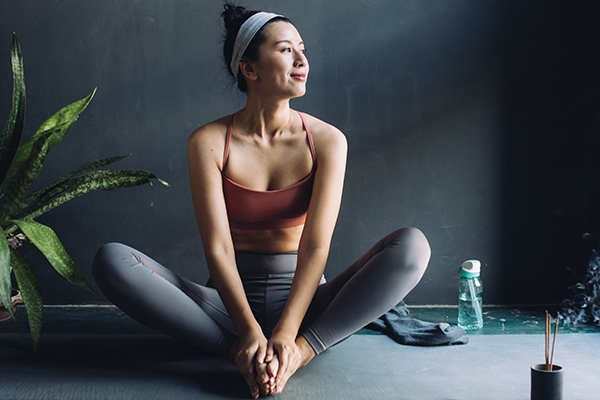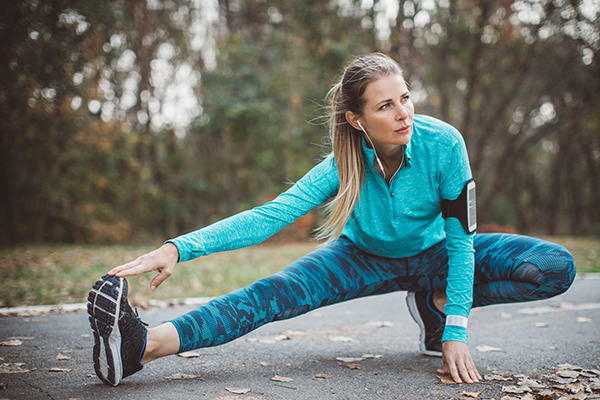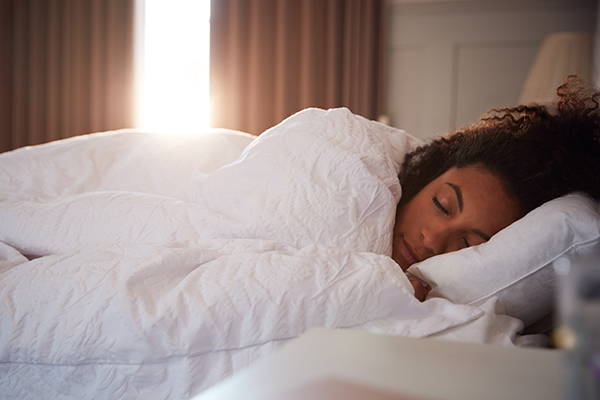4 Biggest Ways Exercise Reduces Stress

You’ve probably been there: For any number of reasons, you’re stressed, so you head out for a bike ride, hit the road for a run, or cue up #mbf. And somehow, by the end of your workout, you feel more relaxed.
You may know exercise can help relieve anxiety, but how does exercise reduce stress? We asked a psychologist and a personal trainer for the answer; below, they explain four specific ways in which exercise can help.
(If you want to know why you stress eat, we have that answer, too.)
1. Boosts “Feel-Good” Chemicals
Scientists are divided on what is chemically responsible for the “runner’s high” or other similar feelings of euphoria you may experience when you work out. But whether it’s endorphins or endocannabinoids or magic pixie bile, there is an unmistakeable connection between sustained physical activity and a zen-like sense of high-performance calm.
“These chemicals interact with pain receptors in the brain and reduce your experience of discomfort,” explains Ryan Howes, Ph.D., a psychologist in Pasadena, California.
Some research suggests that high-intensity or vigorous exercise is best to stimulate this rush of “feel-good” neurotransmitters, but more research is necessary.
No matter what workout you choose, as a bonus, “when people feel these [chemicals], they are much more motivated to continue working out for the positive feelings associated with it,” Howes says.

2. Helps Balance Stress Hormones
Whether you’re being chased by a velociraptor or are simply late for a doctor appointment, the body’s stress response is largely the same: adrenaline is discharged to quicken your heart rate for action followed by the release of cortisol, which orders the mobilization of sugar to provide additional energy.
“If you’re sedentary during this tsunami of hormones, you will feel agitated and jittery,” Howes explains. “On the other hand, exercise is a way to help you express this extra energy, release the tension from your body, and achieve a sense of accomplishment at the same time.”
If your stress is more ongoing, you’ll experience this cortisol response more chronically, resulting in the release of even more unspent fuel. That can ultimately cause unwanted weight gain. Regular exercise helps not only combat that but, according to recent study, it can even help lower cortisol.

3. Provides Moving Meditation
Sitting still isn’t the only way to practice and experience the health benefits of meditation. Any kind of physical activity can serve as a moving meditation, which not only gets blood flowing and muscles pumping, but also positively impacts cognition.
“Meditation is simply ‘paying attention’ to what’s happening in the here and now, specifically within your body and mind,” says personal trainer Jacque Crockford, CSCS, senior product manager for the American Council on Exercise. “So if you like running and you focus on your breath while running or you pay attention to your foot hitting the ground, you’re meditating!”
Same goes for being “in the zone” while lifting weights, swimming, or, yes, practicing yoga, Howes adds.
If you want to try guided meditation, a program like Unstress makes meditation easy and accessible to everyone.

4. Helps Improve Sleep
It’s no surprise that working out may lead to a better night’s rest. There are a few reasons for this. First, exercise can tire you out physically and mentally, Crockford says.
“Second, exercise has been shown to reduce levels of cortisol and increase levels of ‘feel-good’ serotonin. This combination can help to improve sleep [as long as the exercise occurs well before you plan to go to sleep],” she says.
While everyone’s experience with exercise and sleep differs, better sleep can lead to less stress.
Bottom Line: Sweat to Reduce Stress
Now that you know how exercise reduces stress, you may wonder which exercise is best for stress relief or how much exercise decreases stress.
The fact is, there’s no specific protocol for how long to work out or what activity to do. Whether it’s low-impact, moderate, HIIT, or aerobic activity, it’s all a matter of personal preference and some trial and error.
In the end, the medium you choose to counteract stressors isn’t important, Howes says. “What matters is that you’re doing something to help you work through emotions in a healthy way and feel better about your self-care along the way.”
